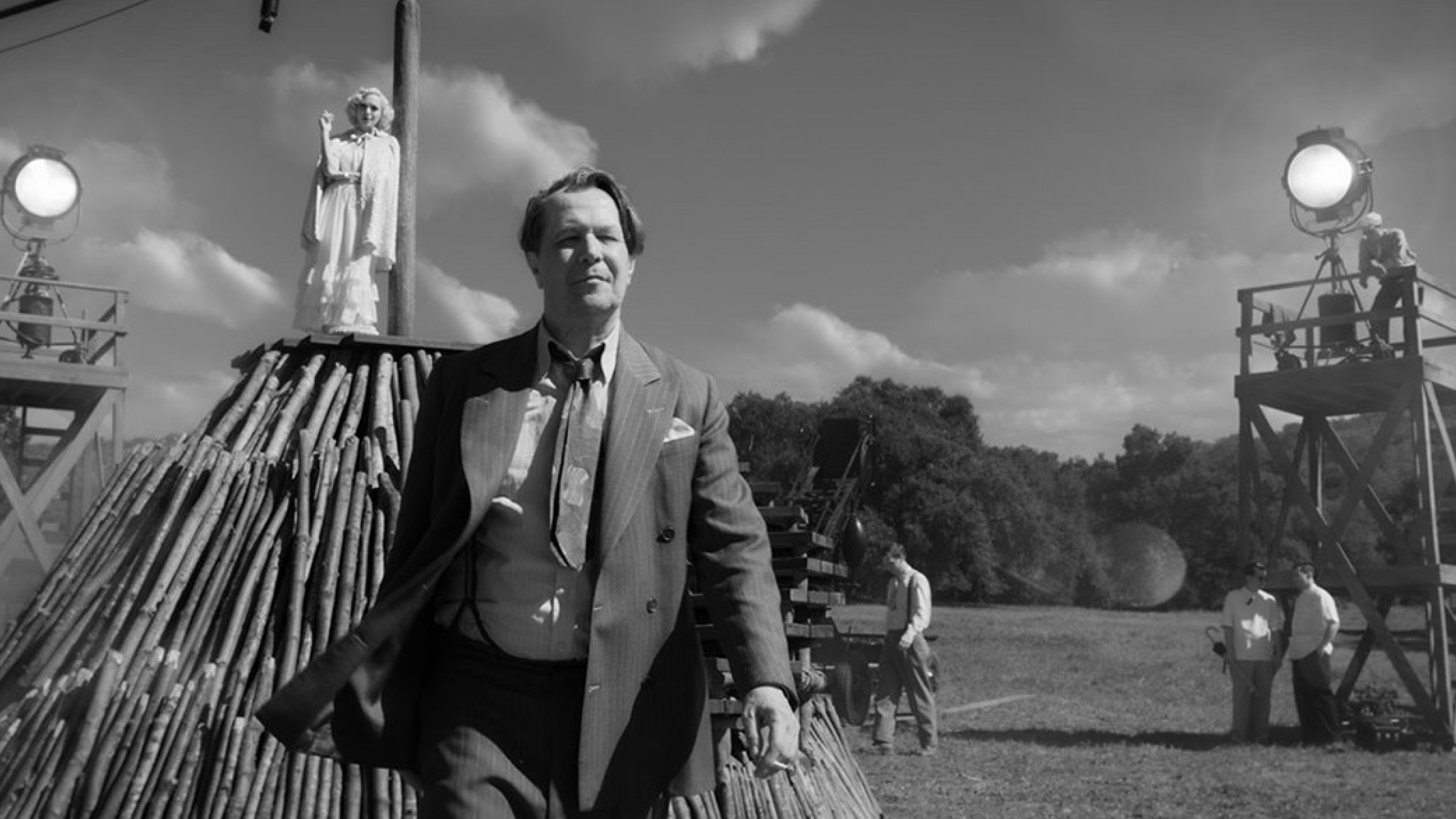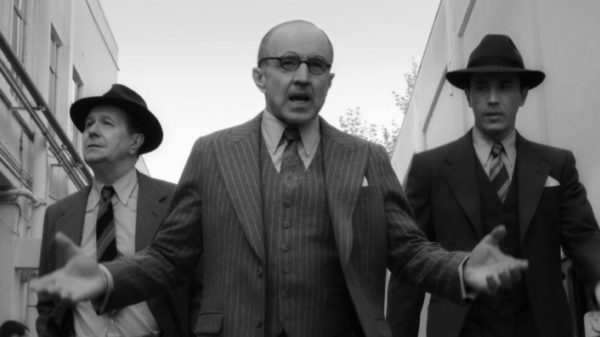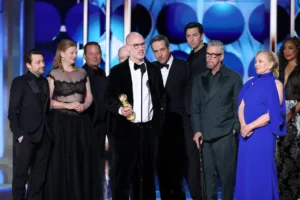‘Mank’ Review: Hollywood in the 1930s, Through the Subconscious of the Artist

Photo Courtesy of INDIEWIRE
★★★★
A “Rosebud” hidden in plain sight
Psychologically-charged concepts infringe upon the metaphysical significance of existence amidst the unchartered waters of David Fincher’s cinematic mind. His seamless ability to synthesize the bare meaning of harsh scenarios deriving from crime-centered, gripping mysteries as well as posh anecdotes that finagle a much more tangible theme is where his directorial brilliance is chiefly infused. In a sense, Fincher’s vision alters — but he consistently triumphs at configuring his cinematic scope with a fine-toothed comb. “Mank,” in this case, manifests Fincher’s versatility to an even greater extent and enchants his mise-en-scène craftsmanship from a beguilingly contemporary outlook.
To put it veraciously, it is quite arduous to articulate how the screenplays — that pose as the verbalized facet of Fincher’s films — formulate the foundation, but the vérité connotation that solely rests on David Fincher’s directorial prowess is constantly excelling through his evident — naturalistic lens. However, in this period-drama that details the precarious chronology of events in the life Herman J. Mankiewicz, every conceptual constituent interweaves quite delightfully and formulates a sturdy final product.
Primarily, “Mank” asserts its expositional eloquence through a series of vignettes that cultivate the under a cluster of black and white, compositional blankets. Moreover, the vision of the script from the late Jack Fincher (the father of David) envelopes the protagonistic tendencies of Herman J. Mankiewicz in a spliced — symbolic fashion that embodies alcoholic comedy with a demoralized passion for screenwriting. And although the winding tunnel to compose the first draft of “Citizen Kane” was quite prolonged and effectively grasps the nucleic core of the film’s impetus, the satirical body of “Mank” and the subtle postulate of divulging the cutthroat personifications of Hollywood were what frequently fueled the motion picture’s sophistication — from a narrative’s vantage point.

Subsequently, the underlying ensemble that recoccuringly confronts Gary Oldman, in his performance of Mankiewicz, provides a ebullient flavor to “Mank” as the climatic accentuations materialize the depth of each individual character. More specifically, preliminary sequences pressed the stiff confines of a Hollywood-set tale in which the commotion delineated is intersected with the smooth emergence of jazzy tones that encompass an evident, presto cadence. Furthermore, these music numbers from Trent Reznor and Atticus Ross evoke a semblance of rapidity within the interior metronome of the film itself. And therefore, fragments of “Mank’s” exploration of the profound hinges of Hollywood mold scenes such as improvisational screenwriting sessions proposed from the subconscious of the visionaries of the early — American motion picture industry.
Conversely, the film’s resurfacing of Herman J. Mankiewicz’s persona throughout the final hour of the narrative’s duration amounted to a slightly more lackluster disposition. The way Jack Fincher’s script drifts to furthest edges of the dramatic spectrum inclined quite a sporadic relocation of what’s generated throughout the expositional fragment. In addition, the inconsistent basis for the screenplay’s thematic alterations constituted a much less emanciptating denouement. In this manner, the galvanizing mastery of David Fincher’s direction as well as his knack for coalescing the subtleties amongst a narrative’s motif appeared much more absent than in that of his cinematic predecessors.
Nevertheless, the graceful elegance of Amanda Seyfried as Marion Davies and Gary Oldman as Herman J. Mankiewicz is quite staggering as they seize the intensity of such a fatiguing segment in the Hollywood film industry as well as the lush undertones that circumscribe the strict overpass of a such as hardship-inducing lifestyle. And truthfully, the emotional impact of “Mank” subdivides the tones into a dynamic harmony that adapts to the perplexing endeavors of each individual.
And in the final moments of the cynical livelihood that encases Herman J. Mankiewicz and all of his tense confrontations with the antagonistic subjects of the Hollywood setting — the tale of “Mank” enunciates the conflicts, but also the solutions that contrive how film is visualized. In another sense, motion pictures — in general — may contain flaws, but they are tactically conceived to venture into a calculated experience of stylistically-charged virtue. And to put it in the most blunt and undeviating format, through the sage verbiage of Louis B. Mayer: “This is a business where the buyer gets nothing for his money but a memory. What he bought still belongs to the man who sold it. That’s the real magic of the movies. And don’t let anybody tell you different.”
Streaming Services Provided By :










